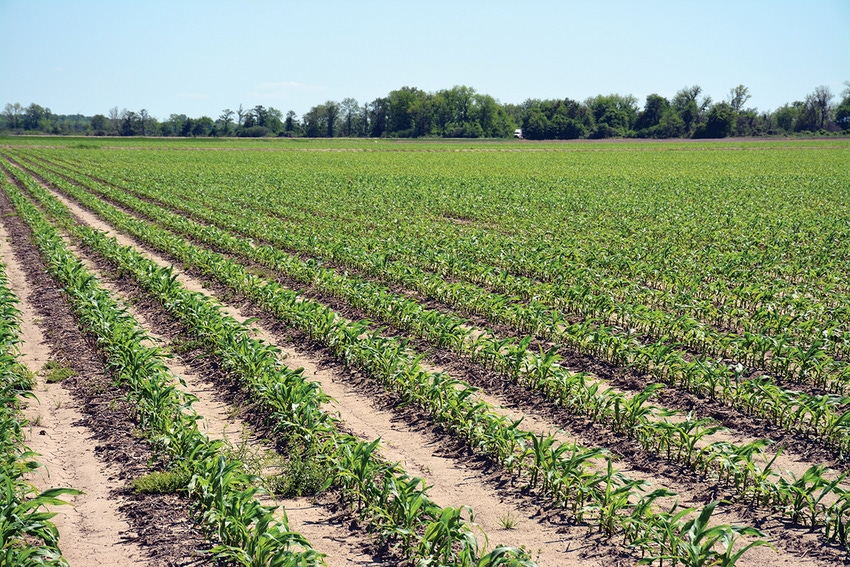
Senate passes Roberts-Stabenow GMO labeling bill, preempts Vermont's 92654
The U.S. Senate voted 63-30 to approve compromise legislation hammered out by Pat Roberts, chairman of the Senate Committee on Agriculture, Nutrition and Forestry, and Debbie Stabenow, ranking member on the committee. The bill now goes to the House.
July 8, 2016

Congress moved a step closer to providing a uniform method of labeling foods containing genetically-modified or GMO ingredients and eliminating a potential “patch-work quilt” of state labeling laws such as the one passed in Vermont last year.
The U.S. Senate voted 63-30 to approve compromise legislation hammered out by Pat Roberts, chairman of the Senate Committee on Agriculture, Nutrition and Forestry, and Debbie Stabenow, ranking member on the committee, The bill now goes to the House.
Labeled the DARK (Deny Americans the Right to Know) Act by opponents of the bill, the legislation requires USDA to determine which ingredients should be considered genetically modified organisms and labeled with words, pictures or a bar code that could be scanned by smartphones.
Following House passage and a signature by the president, state labeling laws, such as the one which took effect in Vermont July 1, would be pre-empted. The Vermont law resulted in manufacturers pulling 3,000 products off store shelves in the state rather than run the risk of violating the new law.
Farm and agribusiness organizations applauded the vote, saying it would provide certainty by requiring a uniform, nationwide approach to labeling. Most contend such labeling is unnecessary, since genetically modified foods are safe, but say the Roberts-Stabenow bill is preferable to a “patch-work quilt” of state labels.
Voluntary labeling solution
“NGFA (National Grain and Feed Association) appreciates the House for taking the lead almost a year ago to provide a voluntary, national biotech labeling solution,” said NGFA President Randy Gordon.
“With all things being equal, we would have preferred the House’s prudent approach. But now, the choice is between the Senate-passed bill, the Vermont law or further delay and uncertainty, and of those, the Senate bill is by far the preferable option.”
“Tonight’s vote in the Senate has been a long time in the making, and we greatly appreciate the work by Chairman Roberts and Ranking Member Stabenow,” said Richard Wilkins, president of the American Soybean Association. “We believe that the bill they have crafted provides consumers the information they need without stigmatizing a safe and sustainable food technology, and we encourage the House to move quickly to approve this carefully crafted compromise.”
Wilkins, a farmer from Greenwood, Del., said: “There is too much at stake in the marketplace to let the consequences of the Vermont law linger any longer. We’re grateful not only for the work of Senate Agriculture Committee leadership, but for the leadership on this issue on the House side as well. The House did its job on its voluntary bill almost a year ago and, while the Senate bill isn’t perfect, it’s the best legislation that can become law.”
“Today, our representatives in the Senate took an important step toward bringing consistency to the marketplace,” said Chip Bowling, president of the National Corn Growers Association. “The Roberts-Stabenow agreement ensures consumers have the access to product information they deserve without stigmatizing this safe, proven technology that America's farmers value. Now, we urge the House to build upon the Senate's work today by quickly taking up and passing this legislation.”
Uniform, national plan
American Farm Bureau President Zippy Duvall echoed those comments, praising the Senate for moving “us one step closer to a uniform, national plan that will provide consumers easy access to information about genetically modified food.
“This bill is not perfect, but it would avoid the chaos of 50 different state laws and a confusing array of labels for ingredients scientifically proven safe. Now that the Senate has done its job, we ask the House to move swiftly so this needed legislation can be delivered to the President for his signature.”
Critics of the legislation contend some food ingredients, which contain almost no genetically-modified material after they are processed, may not meet the labeling requirement, which will be administered by USDA.
For more on the GMO labeling issue, visit http://coalitionforsafeaffordablefood.org/.
About the Author(s)
You May Also Like





